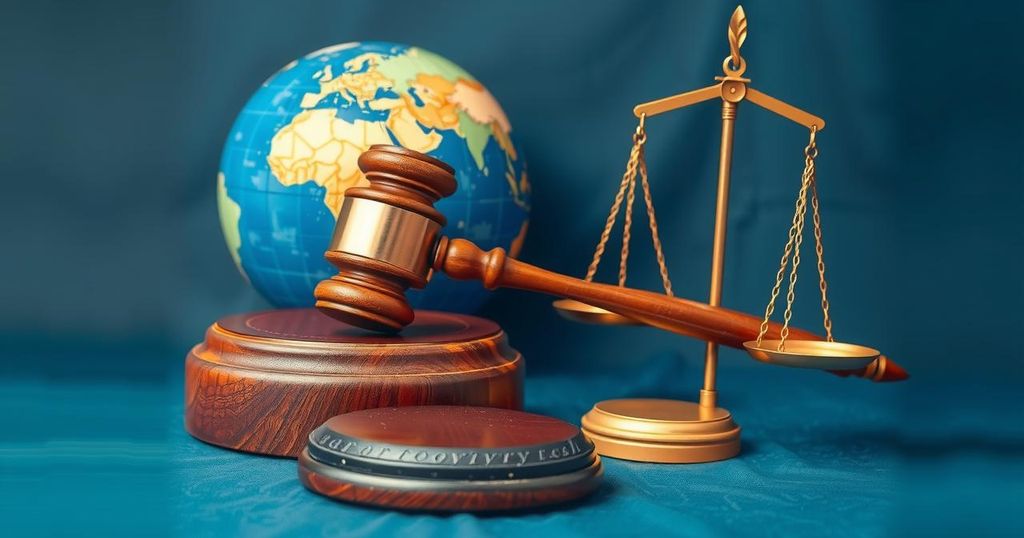Sudan has filed a lawsuit against the UAE at the ICJ, alleging violations of the Genocide Convention regarding support for the Rapid Support Forces in Darfur. The case could impact countries like South Africa due to arms exports to the UAE. Delays in reporting mechanisms have also been noted.
Sudan has initiated legal proceedings against the United Arab Emirates at the International Court of Justice (ICJ) this month. The suit claims that the UAE has violated the Genocide Convention by supporting the Rapid Support Forces in Darfur, thus contributing to the region’s ongoing atrocities.
The outcome of this case could have far-reaching consequences, particularly for nations like South Africa, which is known to export arms to the UAE. Concerns arise regarding the accountability of these transactions in relation to international humanitarian laws.
According to Dr. Atilla Kisla of the Southern Africa Litigation Centre, although the legal reporting mechanisms are operational, there have recently been significant delays in providing reports to parliament, highlighting a gap in timely accountability.
Sudan’s lawsuit against the UAE at the ICJ marks a critical step in holding nations accountable for violations of international law, particularly concerning genocide. The lawsuit’s implications extend to countries engaged in arms exports, like South Africa, underscoring the importance of reviewing such transactions under international humanitarian obligations. Furthermore, the delay in parliamentary reporting raises concerns about the effectiveness of current accountability mechanisms.
Original Source: www.enca.com






